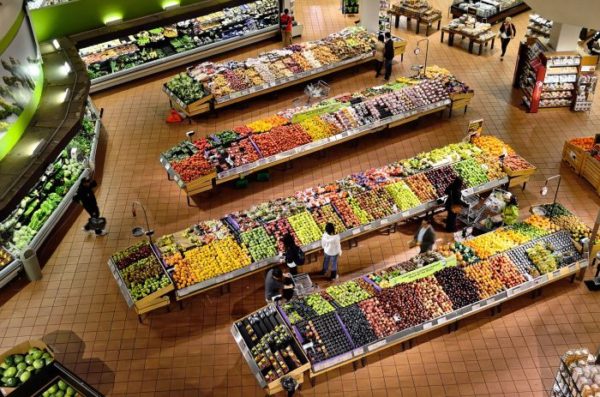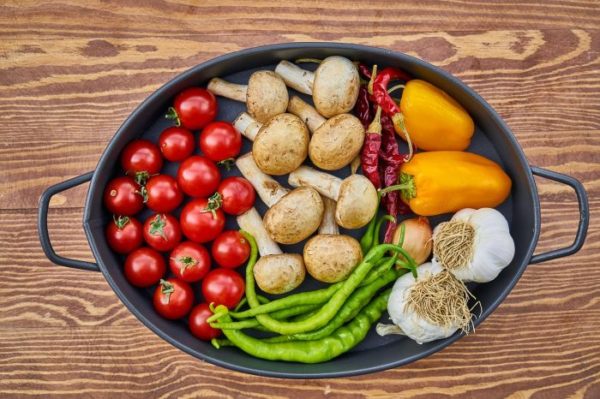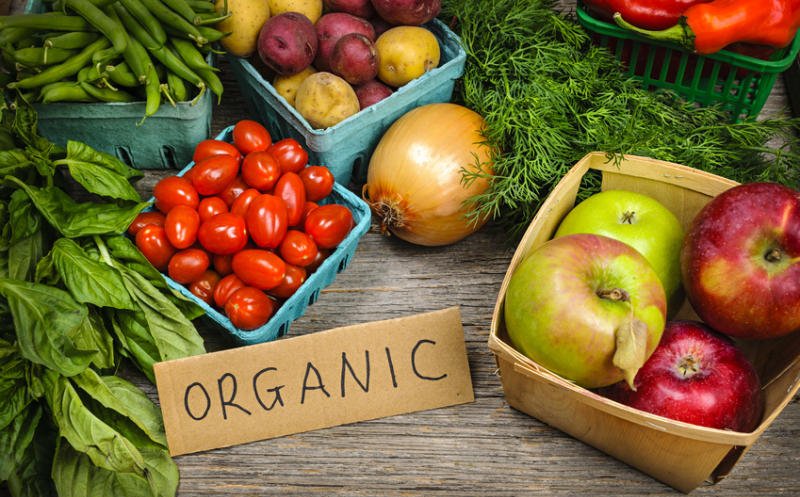Our diet is the most important element, in my opinion, when it comes to reversing fatty liver and eating organic food is your best bet when it comes to taking out all chemicals and unhealthy elements from the foods you ingest.
In today’s article, I will explain why you should do your best to eat as much organic food as possible and especially how to find organic food that won’t break the bank – because, as we all know, organic food is usually extremely expensive.
In August 2014, I have been diagnosed with a non-alcoholic fatty liver disease (NAFLD) and just seven months later I managed to reverse it, improved my overall health and got on the right track to having a completely healthy liver.
If you have read my previous articles, you already know what type of diet I followed (to sum it up, eating healthy and smaller portions, with nothing consumed in excess and completely avoiding the products we’re not allowed to have), but you might not know that I think you have an even better option when it comes to choosing the type of food you eat in order to reduce the harm done to your body. And that’s organic food.
Unfortunately, the sad truth is that most of the food available in stores and markets – even farmer markets – nowadays is full of chemicals, pesticides, fertilizers, while many of the crops have been genetically modified to grow larger, faster and in non-natural conditions.

This mixture of chemicals is unhealthy even for an otherwise healthy individual.
But if you’re also suffering from a fatty liver, things get even more dangerous as all these chemicals affect the liver and that’s exactly what you don’t want: to put more stress on your already fatty liver.
So my advice? If you’re suffering from a fatty liver, eat as much organic food as possible!
Organic food is not more nutritious than regular food, even though some people believe it is. So the nutritional values are not much different (if different at all) between an organic apple and a regular one of the same kind.
That’s not where the benefits come from. Instead, the benefits come from the lack of chemicals that are used to treat or grow the non-organic food that we consume.
Pesticides, tons of fertilizers, preservatives and other chemicals that increase the shelf life or make the foods we eat more attractive visually – all these are actually unhealthy.
Sure, there are regulations that most companies adhere to, but it’s still lots of chemicals that you throw into your body and they do add up, even when trying to eat healthy and balanced meals.
And even so, every now and then a test is made and some producer is found to be using more of a chemical or another than they’re supposed to… and this is scary.
Organic foods, on the other hand, should not have any of these chemicals because, well… they’re organic.
I do believe that maybe some producers don’t really follow all the strict guidelines, but at least there’s a higher degree of control here and the fines and penalties can even take them out of business, so risking it doesn’t make sense for organic food producers.
As a result, eating as much organic food if you have NAFLD is ideal.

Unfortunately, most organic food is extremely expensive and since not everybody is Bill Gates, we can’t really afford to eat only organic.
BUT we should try to eat as much as possible and below I am sharing with you a few of my tricks that I used in the months since I’ve been diagnosed with a fatty liver to eat organic food without spending a fortune.
– Visit farmer markets and local farmers. Some won’t use pesticides and/or just natural fertilizers for their fresh products. Since most are not certified organic, this is risky, but a risk I was always willing to take.
Talk to the people selling their products, find out how they grow their crops and use common sense when buying (way too large and good looking products are usually not organic).
– Start small with the cheapest products. I first started to buy products that, even though more expensive than non-organic varieties, last a long while.
Start with spices (this set – affiliate link – is insanely affordable and comes with 24 jars of different organic spices), then organic pasta (affiliate link) and black rice (affiliate link). You will use these products over a few months, and the financial shock won’t be that great.
– Buy in bulk. Usually, the more you buy, the better the prices – and a good example are all the products I recommended above.
– Keep an eye on discounts and stock up. If we’re talking about products that don’t spoil quickly, you should buy as many as possible when they are available for special prices.
I always keep an eye on Amazon’s organic products (affiliate link) and buy in bulk.
I really recommend you do the same – it requires a bit of getting used with all the products and prices (you should write them down for further reference!) but all this hard work is really worth it because, in the end, it’s your health that you’re taking care of!
– Buy store brands instead of big brand names. Organic milk and yogurt is way cheaper at stores like Lidl or Aldi (and probably every store that has its own brand) and it’s still organic.
– Explore all stores when it comes to buying fresh products (organic fruits, vegetables and meat). These are the most expensive, in the end, since this is what we’re going to eat the most of.
But you can still keep the costs low: remember, we’re now eating smaller portions and less meat, so even though that pound of organic chicken breasts is expensive, it will last longer now.
– Know which non-organic foods are still considered safe to eat. Keep an eye on the so-called dirty dozen and the clean 15: this is a list of fresh fruits and vegetables that are usually either full of pesticides and chemicals (the dirty dozen) or safer to eat. Check the list here.
This means that you’re bombarding your body with fewer chemicals if you get the non-organic versions of the clean 15, but you should try to eat as much of the others in their organic form.
There are also many other foods that are still safer to eat even if they’re not organic.
If you have a particular product that you use a lot in your diet, simply do some research via google and decide if it’s still safe to eat it even if not organic. But do the research on multiple sources and make sure that they’re trustworthy!
Finally, remember that “organic” does not automatically mean “healthy” when you have a fatty liver.
If you are buying processed foods, even if they are organic, they can be still very high in fat or sugar – or even have preservatives – so always make sure to read the label or, even better, ignore processed foods completely and buy the base ingredients.
Start slow and adjust your budget accordingly. You will see that once you get used to it, eating mostly organic is not that much more expensive than consuming regular food, as long as you invest some time in finding where and when to buy from.

I was diagnosed with a fatty liver back in 2014 and managed to reverse it by mid-2015. Since then, I’ve been studying it, continuously updating my knowledge with the latest scientific findings and practical approaches to give others the help they need to reverse their condition.
My approach to managing fatty liver is holistic, balancing scientifically-backed information with real-life, practical advice based on personal, direct experience.
I am also the admin of the Fatty Liver Support Group on Facebook and the Fatty Liver Subreddit.

